Events
Upcoming Events
All our events are open to the Chicago KUH FORWARD research community unless otherwise noted. View all scheduled events at Northwestern PlanIt Purple.
Feb
23
Past Events
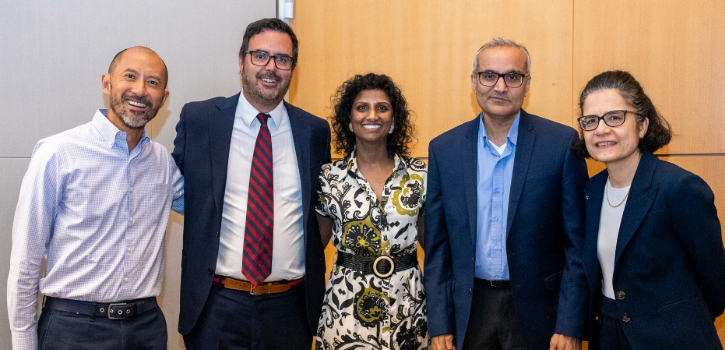
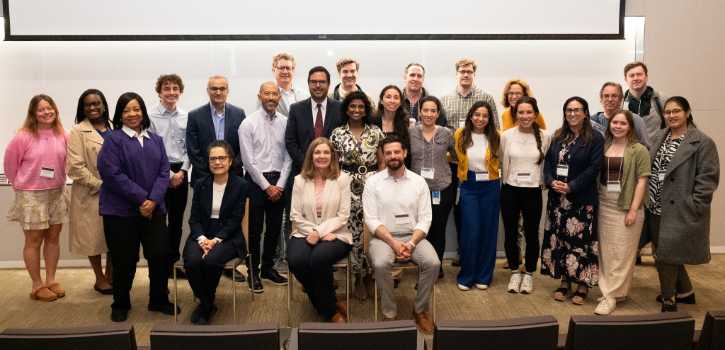
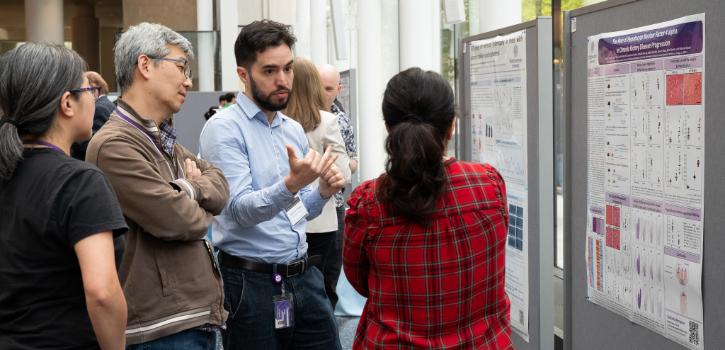
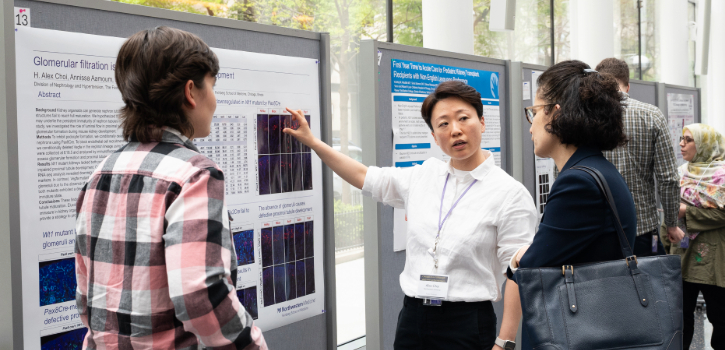
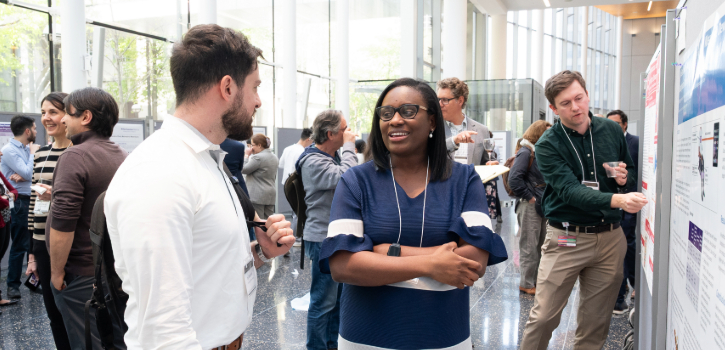
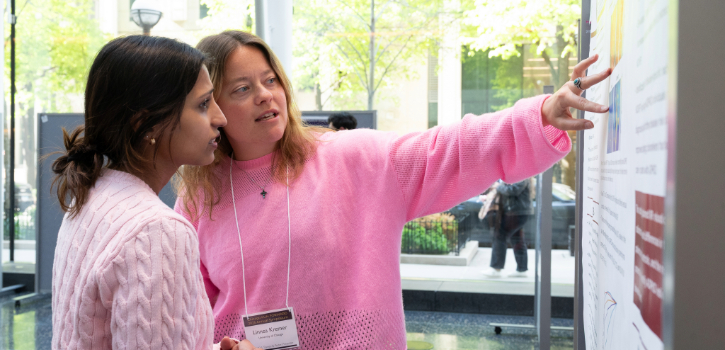
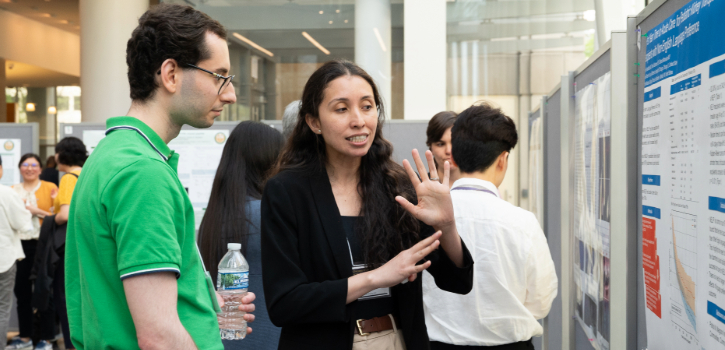
2025 Chicago KUH FORWARD Symposium
Thank you to everyone who participated in our 4th Annual Symposium! Drawing participants from diverse disciplines around the Chicago area, the symposium showcased groundbreaking research and fostered invaluable networking opportunities. Special thanks to our keynote speaker, Dr. Jeffrey Lebensberger, for his presentation.
Click here to view Dr. Lebensnerger’s presentation and panel discussion.
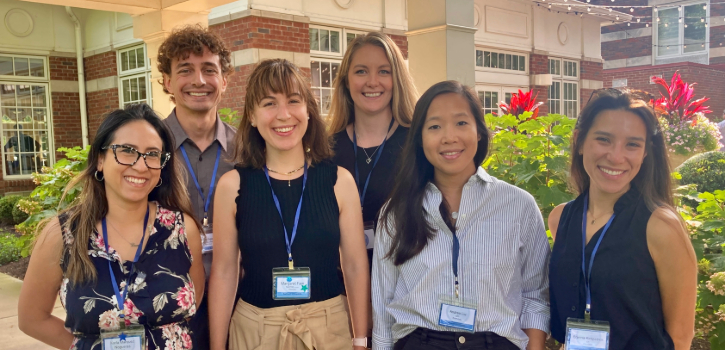
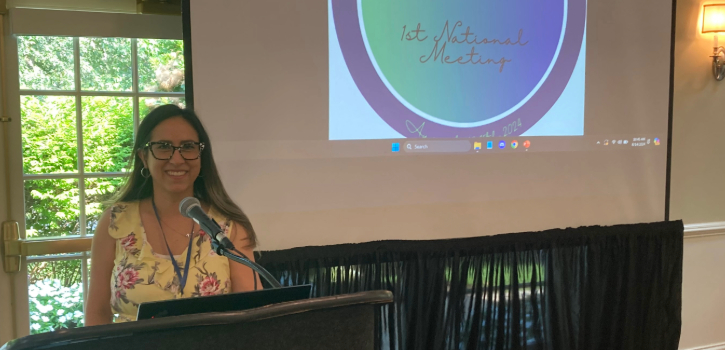
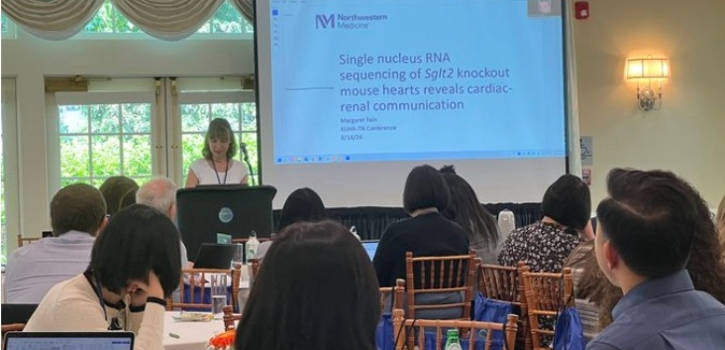
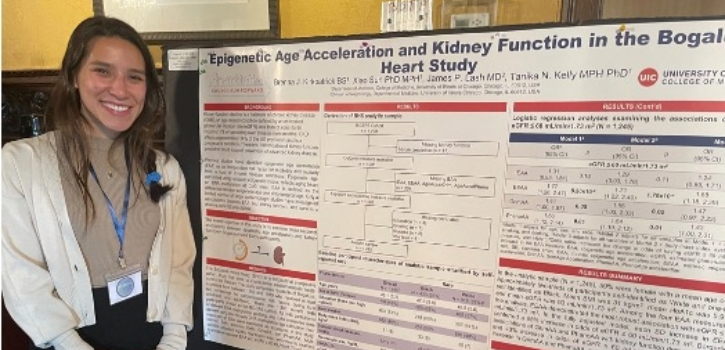
KUHR-TN national meeting
The first Kidney Urology Hematology Research Training Network (KUHR-TN) national was held on August 14 & 15, 2024 in Cleveland, OH.
Chicago KUH FORWARD had a strong presence!
- Maggie Fain, predoc trainee from Northwestern (Mentor is Dr. Susan Quaggin) gave a research talk and 7 other trainees gave scientific poster presentations.
- Two program faculty, Holly Kramer, MD, Loyola University and Jennie Lin, PhD, Northwestern, represented our program as instructors for two Master Classes.
- Special recognition to Karla Marquez-Nogueras, Postdoc trainee from Loyola University Chicago, for serving on the trainee planning committee and chairing a plenary session.
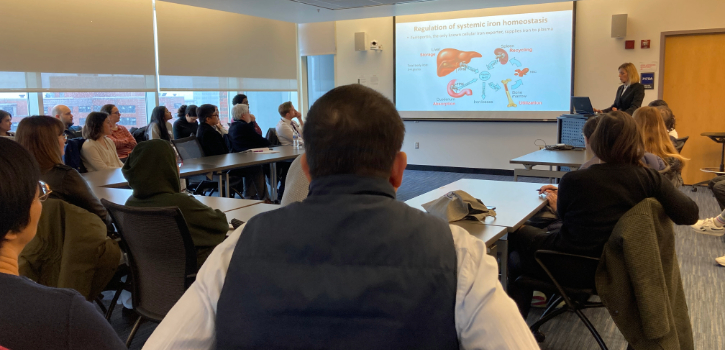
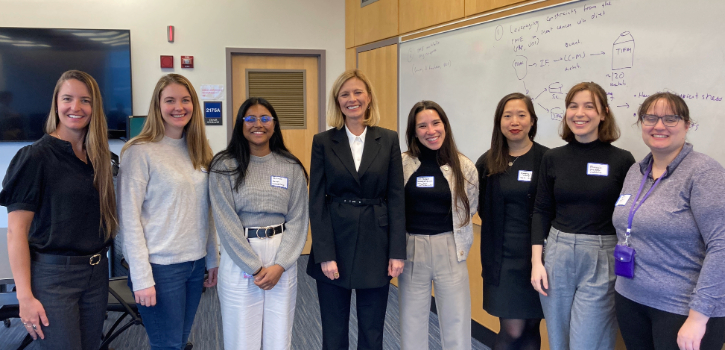
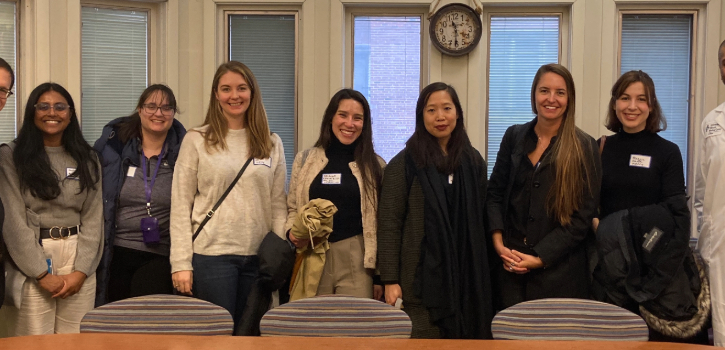
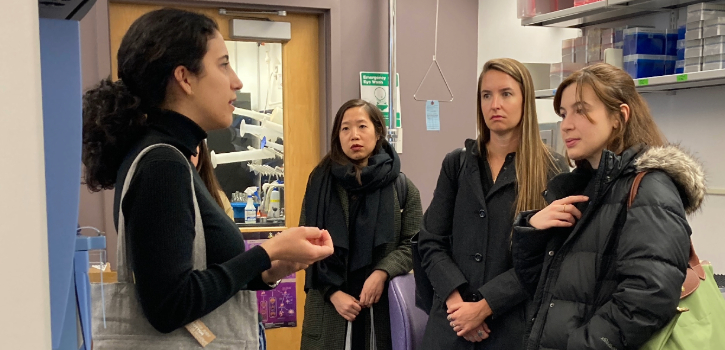
UIC Speaker Seminar
In Spring 2024, University of Illinois at Chicago Hematology and Sickle Cell Center hosted Elizabeta Nemeth, PhD, Professor of Medicine & director of Center for Iron Disorders at UCLA.
This coming December, Lurie Children’s Hospital will host Dr. Matt Sampson, Pediatric Nephrologist at Harvard/Boston Children’s Hospital.